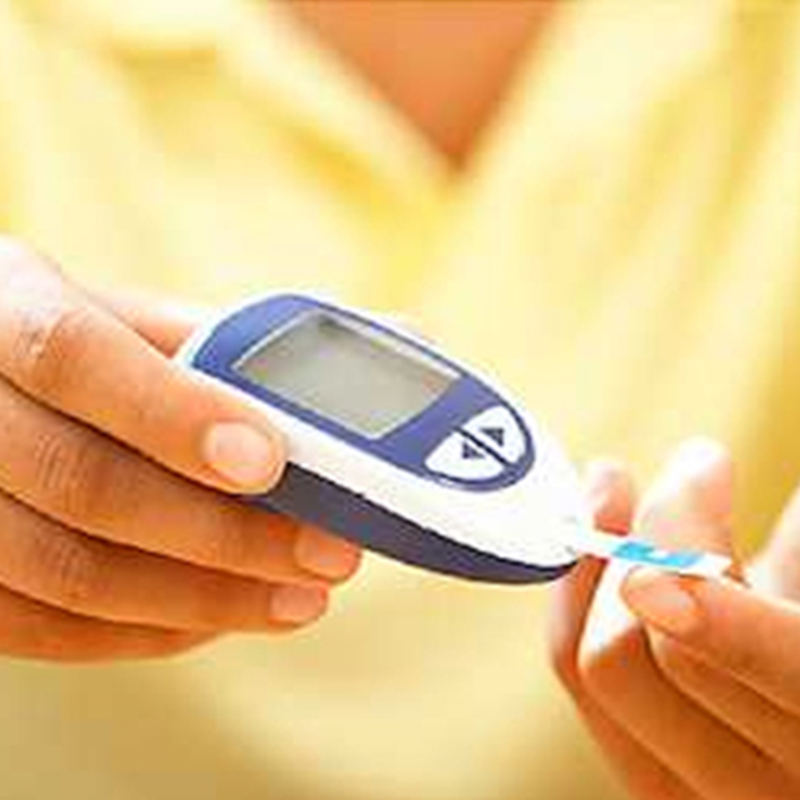
Diabetes
Diabetes is a group of metabolic diseases in which a person has high blood sugar, either because the body does not produce enough insulin, or because cells do not respond to the insulin that is produced. This high blood sugar produces the classical symptoms of polyuria (frequent urination), polydipsia (increased thirst) and polyphagia (increased hunger).
Insulin is a hormone produced by the pancreas and its main role is to check the levels of glucose in the blood.
·Type 1 diabetes: results from the body's failure to produce insulin, and presently requires the person to inject insulin. (Also referred to as insulin-dependent diabetes mellitus, IDDM for short, and juvenile diabetes.)
Type 2 diabetes: results from insulin resistance, a condition in which cells fail to use insulin properly, sometimes combined with an absolute insulin deficiency. (Formerly referred to as non-insulin-dependent diabetes mellitus, NIDDM for short, and adult-onset diabetes.)
· Gestational diabetes: is when pregnant women, who have never had diabetes before, have a high blood glucose level during pregnancy. It may precede development of type 2 DM.
· DiNormal glucose levels: Fasting: 80 - 110. Post meals up to 140.
CAUSES
- Obesity.
- Pregnancy (temporary), severe illness, severe infection with virus (e.g. mumps) & dietary factors.
- Medications, especially antibiotics, laxatives containing magnesium, and chemotherapy for cancer treatment, can also cause diarrhea.
Mostly diabetes is hereditary.Other causes which predispose to diabetes are:
SIGN AND SYMPTOMS
Increase in frequency of urine especially at night where a person has to get up 5-6 times to urinate i.e. Polyuria
- Increased thirst i.e. polydipsia
- Dry mouth
- Loss of weight
- Irritability & fatigue
- Blurring of vision
- Headaches
- Frequent infections
- Non-healing wounds
Impotency in men and frequent vaginal infection in female. Diabetes affects really all the system. If not controlled it affects -
- Blood vessels of eyes- causing damage i.e. retinopathy.
- In arteries causes fat deposition which reduce blood supply to distant parts.
- In case of injury - it causes infections which may lead to gangrene.
- Kidney is also affected i.e. nephropathy.
- Heart is also affected with uncontrolled diabetes. E.g. Hypertension, heart attack, CAD.
DO'S AND DON'TS
Follow your physician’s advice regularly and have a regular follow-up.Do not stop or alter medication on your own.
- Avoid sugar / and things which have an increased sugar content Avoid alcohol, smoking.
- Avoid high calories diet e.g. oil food, buttered food etc.
- Exercise regularly. Walk at least for 45 minutes daily. Maintain your optimum weight - reduces chances of Diabetes Have lots of Salads instead of oily food. While going out, take a packet of biscuits with you. If you feel giddy then have 1 or 2 biscuits.
- Take extra care for your foot. In case of any bruise of cuts, blisters swelling see your doctor immediately. Cut t nails regularly. Do not walk bare footed. Wear good padded footwear. Do not take appetite suppressants to control your weight. They increase blood sugar levels. Fish oil also increases blood sugar levels.
- Nutrition and Diet in Diabetics.
- Low calorie and low fat diet.
- Avoid oily foods.
- Have plenty of salads.
- Avoid vegetables which grow underground, e.g. potatoes, onions. Fruits like Chikoo, mango, bananas should be avoided and in any case don't have the whole fruit but have a single slice in a day. Karela (Bitter gourd) juice is beneficial.
- Avoid tea, coffee and cocoa.
- Avoid chocolates, pastries, jam, sweets.